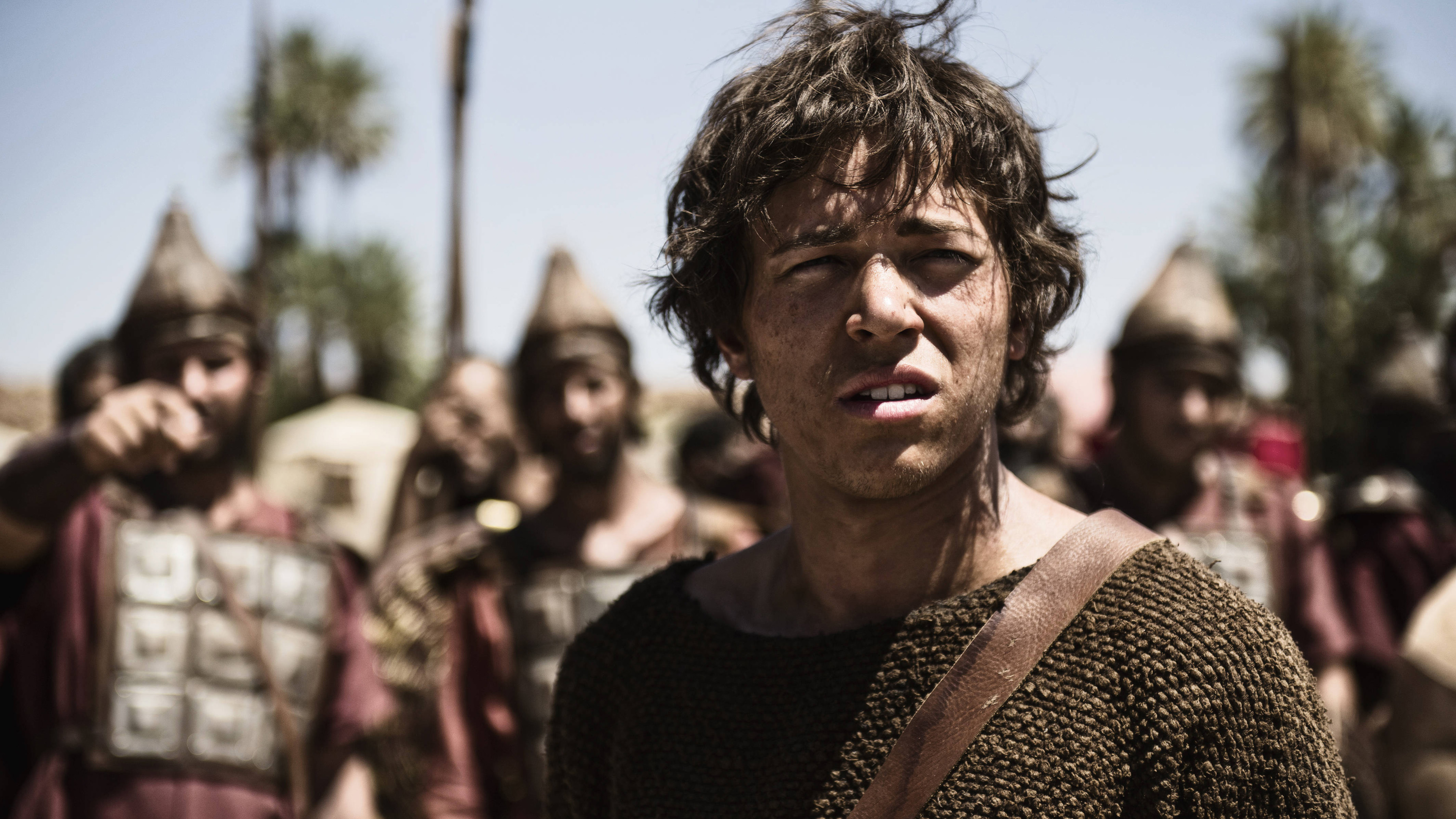Part 1
It’s hard to decide whether I’m biased or not. The thing is, Hollywood is so hard to trust. “Hope for the best, prepare for the worst,” as one of the CIA dudes from the Bourne movies said, and that’s pretty much my attitude concerning The Bible series. And of course, there are the unconscious mental images of and personal speculations concerning Biblical characters that everyone carries.But to banish that cynical note, while The Bible did not conform completely to my “best” scenario, it’s much closer to “best” and a long, long shot from “worst.” Admittedly, though, it did get a slow start, and build up to a great end. It started off with Joshua, who had about five minutes of enthusiastic The City is OURS moments, but little else. Like the first episode, this was one of the weaker aspects – over-excited characters who just think God can do no wrong. Which, of course, He can’t. But nobody feels that way all the time. Humans doubt. Humans ask God why. There wasn’t enough human weakness. All the same, the producers shot the violence and divine justice without flinching. There was no heavy-handed commentary about the Israelites taking over Canaan—it was just portrayed for the viewer to decide. (By the way, MSNBC, that’s how journalism should be done).
Now, we come to Samson, who was a poster-child for weakness. Unfortunately, Samson, one of the Bible’s greatest anti-heroes (by that, I mean, he was interesting), has been turned into a confused Teddy-Bear of a man who really did mean well. The Philistines are portrayed as one-dimensional bad guys who wear dark eye-shadow (seriously). There’s little blame attached to Samson, only a little more to Delilah, who seemed to have some affection for him, most to the ugly Philistine leader.
 That said, this story had more depth and greater complexity than most we’ve seen so far. Samson’s momma (Sharon Duncan-Brewster) was a stand-out. I say momma because she has the dress and bearing of the one of the magnificent slave-women from the antebellum South—that sense of beautiful, noble African grace amid suffering. She’s a wonderful representative of captive Israel. Samson himself, while I wish he’d been a little less sympathetic, is well played by Nonso Anozie, who conveys a conflicted, immature, sensitive young man. His *spoiler* redemption at the end of the story is touching and dramatic *end spoiler - but seriously, if you skipped the spoiler, you should be reading the Good Book instead of this review.*
That said, this story had more depth and greater complexity than most we’ve seen so far. Samson’s momma (Sharon Duncan-Brewster) was a stand-out. I say momma because she has the dress and bearing of the one of the magnificent slave-women from the antebellum South—that sense of beautiful, noble African grace amid suffering. She’s a wonderful representative of captive Israel. Samson himself, while I wish he’d been a little less sympathetic, is well played by Nonso Anozie, who conveys a conflicted, immature, sensitive young man. His *spoiler* redemption at the end of the story is touching and dramatic *end spoiler - but seriously, if you skipped the spoiler, you should be reading the Good Book instead of this review.*Next up, the saga of Saul and David – my absolute favorite story in the Bible. But while, obviously, this one garnered my greatest scrutiny, of all the stories so far, this was the first to drag me completely in. Samuel was one of the first truly interesting people, with a really engaging frustration and disgust with Saul. Saul was pitch-perfect, played by Francis Magee. His slow descent into paranoia, madness, and monomania drove the story with a force lacking in any other character as of yet.
It’s really too bad that there have to be so many Young David-Old David, Young Moses-Old Moses shifts, because often it feels like the young actors, with a little make-up, could easily take on the older roles, and thus achieve greater continuity. I’m pretty sure David’s eye-color changed. But this is unimportant—how was their acting? Both Jonathans were quite good. The young David did, as Eric Metaxas pointed out, sound like Oliver Twist, but contrasted nicely with grumpy, schizophrenic Saul.

Still, while this David wasn’t quite active enough for my taste, he wasn’t bad, and his seduction, or rather entrapment, of Bathsheba was chilling. The real horror of his betrayal of Uriah was brought to the fore, as Uriah accompanied him as a sidekick for multiple scenes. This, of course, is accurate, as Uriah was listed as one of David’s closest warriors, one of his Mighty Men, in 2 Samuel. (As an aside, Bathsheba’s father, Eliam, was one the Mighty Men as well, and her grandfather, Ahithophel, later betrayed David, pledging allegiance to Absalom).
David’s repentance is not as dramatic and sincere as it should have been, but the death of his son does touch him deeply. “Though you are weak, God loves you, David,” Nathan tells him. Amen.
Enter Jesus next week!
3/5 stars

No comments:
Post a Comment
WARNING: Blogger sometimes eats comments - copy before you post.